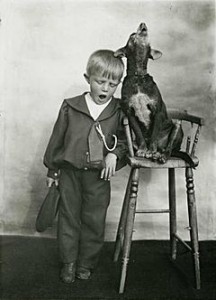#2. Write in your own voice
 Remember Eddie Haskell on the old television program, “Leave it to Beaver”?
Remember Eddie Haskell on the old television program, “Leave it to Beaver”?
“How are you today, Mrs. Cleaver? You certainly look lovely.” “Isn’t it a lovely day today, Mrs. Cleaver?” He had this way of speaking to June Cleaver that was so fake, so phony. Not at all the way he spoke with Wally and The Beav. June didn’t believe him and neither did we.
Do you ever talk that way in your public voice? “Unaccustomed as I am…” “May I inquire…” Does it ever seep over into your writing?
Sometimes if we go for what we think of as proper or educated or smart, instead of sounding smart, we wind up sounding stilted. The natural rhythms and cadences of our real voices are absent and we don’t sound like ourselves or even anyone we know.
Here’s the thing: your own voice is the place and people you come from, the language you learned at the kitchen table and in the back yard. Your own voice comes naturally. Grace Paley said, “If you say what’s on your mind in the language that comes to you from your parents and your street and friends, you’ll probably say something beautiful.”
If you’re having difficulty getting words down on the page, if you feel like you’re arm-wrestling with your pen, if you scratch out and rewrite, if you think instead of writing, especially first-draft writing, then you can bet you’re not writing in your own natural, authentic voice.
Brenda Euland advises, ” Try to discover your true, honest, untheoretical self.”
How to do it? Just get a prompt, set the timer and let ‘er rip. You’ll clean it up later, but what you might discover in that messy draft on the page is your own beautiful, authentic, original voice.

